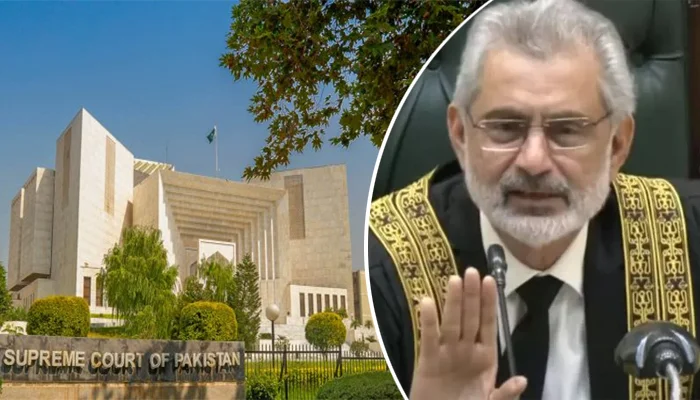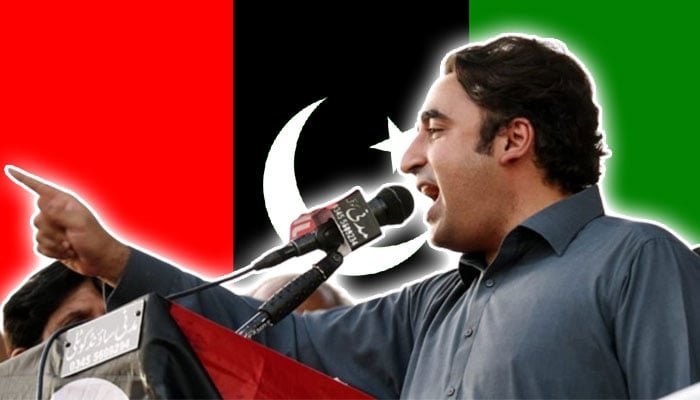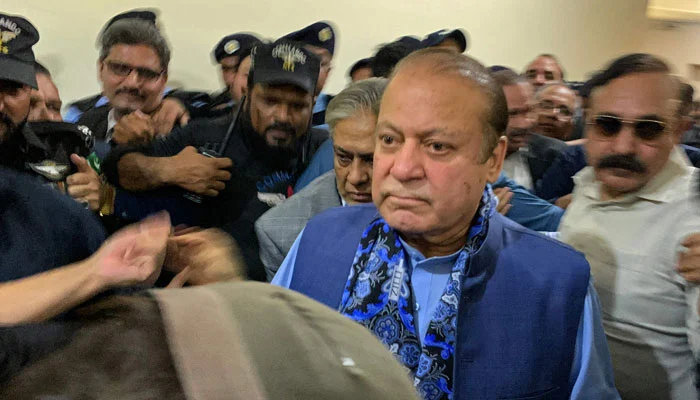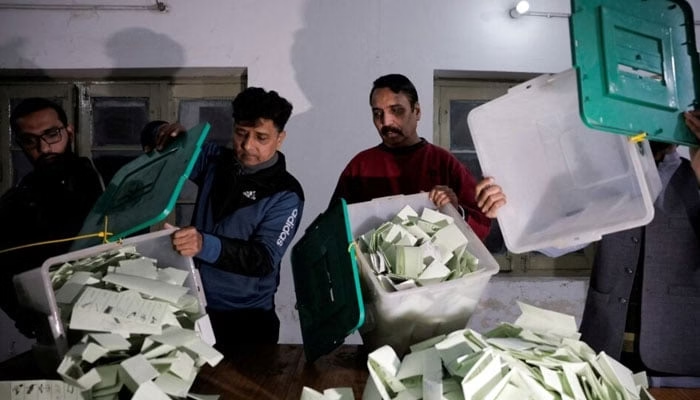The Supreme Court of Pakistan has directed the Ministry of Defense and the Inter-Services Intelligence (ISI) to withdraw their requests for a review of the Faizabad dharna case. The court expressed its dissatisfaction with the government’s handling of the case, as well as the requests for a review made by the ISI, the Ministry of Defense, the federal government, and the Election Commission.
In the Faizabad dharna case, the Supreme Court had declared the government’s Fact-Finding Committee illegal and rejected it. Additionally, it instructed the Attorney General to establish a new inquiry commission promptly. The court made it clear that the requests for a review from the Pakistan Tehreek-e-Insaf (PTI) and Muttahida Qaumi Movement (MQM) were to be dismissed. If Sheikh Rasheed, the federal minister, did not appear before the court, the review requests would be denied.
During the hearing led by Chief Justice Qazi Faez Isa, a three-member bench, including Justice Amin-ud-Din Khan and Justice Atar Minallah, raised several questions. The Chief Justice inquired about the whereabouts of Mr. Abusar Alam, to which Attorney General Mansoor Awan responded that Alam was reportedly traveling.
Chief Justice Isa highlighted that Abusar Alam had levied serious allegations against government officials in his statement. He then questioned the Attorney General about whether they still intended to pursue the review requests after such allegations. Attorney General Awan responded by mentioning that they had established the Fact-Finding Committee in response to Alam’s allegations.
Furthermore, the Chief Justice asked the Attorney General about Abusar Alam’s role during the Faizabad dharna. Awan explained that Abusar Alam was the Chairman of PEMRA during the time of the dharna.
Chief Justice Isa suggested that it would be better for them to read the instructions provided in the notes regarding the Faizabad dharna case. This case has taken a new turn with the former Chairman of PEMRA, Abusar Alam, providing a sworn statement, further complicating the matter.
In the courtroom, the Chief Justice also inquired about when the federal government had formed the Fact-Finding Committee. Attorney General Awan responded that the committee had been established on October 19th, and it would thoroughly investigate all aspects and submit a report.
Chief Justice Isa expressed his concerns about the committee’s lack of progress and asked under what law it had been created and what its legal status was. In response, the Attorney General mentioned that the committee would produce reports, indicating that it was a fact-finding entity rather than a body with executive powers.
The Chief Justice made it clear that, in his view, the government had allowed a situation to develop where the whole nation was held hostage by one group. He also highlighted the issue of a person being imported from abroad, causing unrest, and then leaving the country. He criticized the government’s inability to conduct effective investigations.
The Supreme Court’s decision to reject the review requests from the Ministry of Defense and ISI signifies a significant development in the Faizabad dharna case. The case continues to raise questions about accountability, the role of government institutions, and the influence of external factors on domestic affairs. The Court’s insistence on following due process and its commitment to transparency and accountability are essential principles in this high-profile case.
In a recent hearing, Chief Justice of Pakistan, Justice Gulzar Ahmed, raised critical questions about the government’s handling of the Faizabad Dharna case, expressing concerns about the way the situation was being managed. The Faizabad Dharna, a significant political protest in Islamabad, took place in 2017 and led to a sit-in, disrupting daily life in the capital city for several weeks.
During the hearing, Chief Justice Gulzar Ahmed questioned the Attorney General, stating that even children might provide better answers than the government’s representatives regarding the case. He inquired whether state affairs were being conducted in accordance with the constitution. The Chief Justice further emphasized that they had asked who was responsible for the sit-in, and the committee’s TORs (Terms of Reference) seemed to absolve everyone involved, despite significant financial losses.
He challenged the government’s committee, which was formed to investigate the Faizabad Dharna incident, asking whether its findings would be presented to the federal cabinet and if the report would be presented in court for possible legal actions. The Chief Justice was unsatisfied with the committee’s work and expressed doubts about its impartiality.
Furthermore, Chief Justice Gulzar Ahmed questioned the government’s motives, stating that the government should take responsibility for the handling of the Faizabad Dharna case and that it was their duty to ensure justice. He also raised concerns about the lack of action taken on the case since February 6, 2019, and how no one had been held accountable during that time.
The Chief Justice inquired whether the government truly intended to address the Faizabad Dharna case, hinting at potential political interference. He questioned the government’s actions and motivations, particularly regarding any possible correspondence with the Canadian government. He also criticized the lack of accountability for those who travel abroad and stage protests without consequences.
In the end, Chief Justice Gulzar Ahmed insisted that the government needed to learn from the past and ensure that such incidents did not occur again in the future. He called for accountability and transparency in the handling of the Faizabad Dharna case and questioned the government’s commitment to this matter.
The Supreme Court rejected the government’s fact-finding committee, and the Attorney General was directed to establish a new inquiry commission promptly.
The Chief Justice’s pointed questions and concerns shed light on the unresolved issues surrounding the Faizabad Dharna case and the need for transparency and accountability in such matters. The case has highlighted the complexities of governance, protests, and the rule of law in Pakistan.



